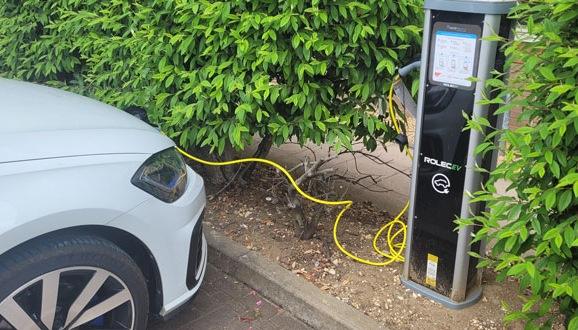Property developer Willmott Dixon has announced it will roll out electric vehicle (EV) charge points across all its sites and offices. The company said it has teamed up with Rolec to install charging devices at more than 100 locations in England and Wales during 2021.
The roll-out is to accommodate nearly 300 people who have switched, or are switching, to electric vehicles under the company’s car scheme, according to Wilmott Dixon. The company said this move was part of its pledge to reach net-zero by 2030 without offsetting carbon.
Charging at work can be an extremely convenient way for employees to recharge their EV while parked during the day. From a business perspective, workplace charging is becoming increasingly important as a facility for employees and visitors, while for businesses with an EV fleet it is essential to operations.
The government offers businesses, organisations, charities, and local authorities financial support and guidance to have charge points installed at their premises under the Workplace Charging Scheme (WCS).
Julia Barrett, chief sustainability officer at Willmott Dixon, said:
“Through our 2030 ‘Now or Never’ sustainability strategy, launched last autumn, we have set ourselves some of the toughest science-based targets in the industry, as we pledge to have no direct emissions from our day-to-day operations by eliminating fossil fuel use in our offices and on our sites.”
She added that a 100% electric fleet was “critical” to achieve the pledge and required corresponding charging infrastructure “to make this step change possible.” The statement did not include further details on the charging equipment Rolec is to install at the property developer’s offices and sites.

Wilmott Dixon expects its shift away from fossil fuel vehicles to save over £300k.
Rolec, initially from the caravan, marina and outdoor industry, has a base in Lincolnshire and began producing charging devices around four years ago. The company has since won orders from Kia UK and DPD.
The company’s portfolio includes DC rapid and ultrafast products as well as on-street charging solutions. In 2017, Rolec EV introduced a smart technology platform that integrates real-time charge point data, such as availability, costs and power consumption.
Wilmott Dixon – which has switched its car funding policy from a standard three-year operating lease to a salary sacrifice scheme – expects its shift away from fossil fuel vehicles to save £360k in fuel reimbursement, helping to support more people transitioning to EVs.



